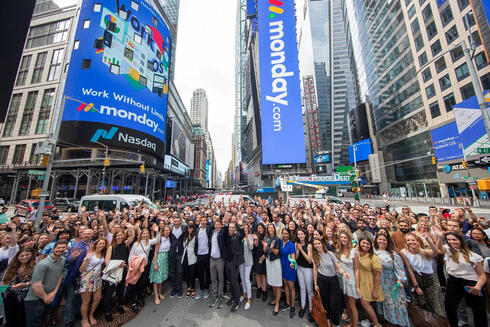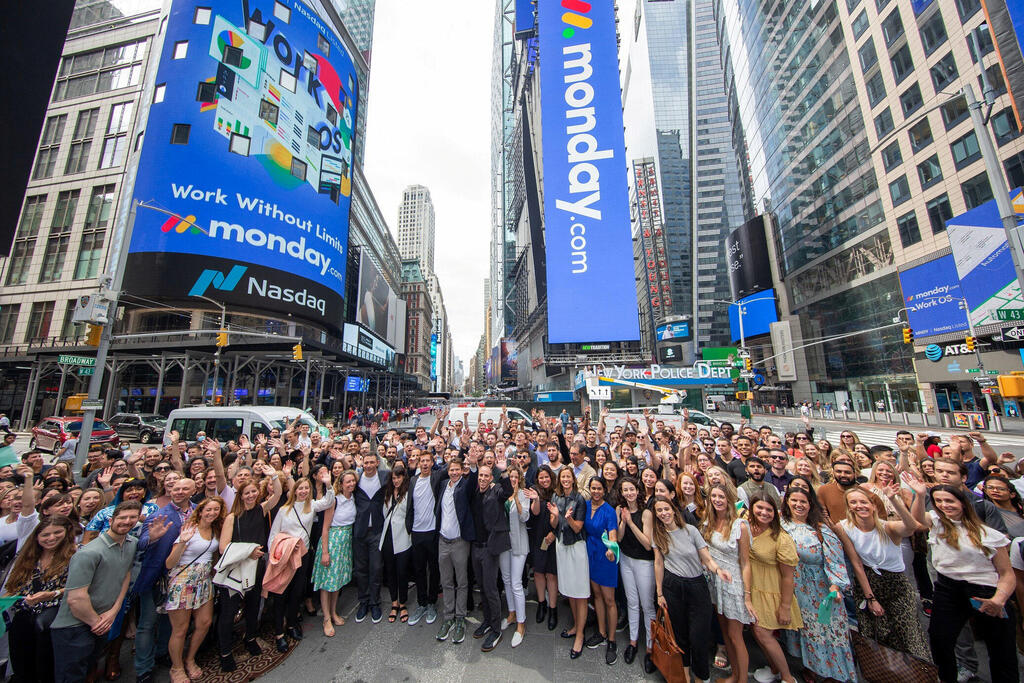
Monday’s AI gamble: Will it fuel growth or is the hype priced in?
Investors are betting big on AI, but can Monday deliver real results?
Last Monday, Monday.com published its financial results for 2024, and investor reaction was extreme: the stock soared 26%, adding $3.5 billion to the Israeli software company's market value, which now stands at $16.5 billion.
That’s the good news for shareholders. It’s significant, but it must be viewed in context. The stock’s sharp jump brings Monday’s share price to just 0.7% above where it was three months ago, on November 8, 2024, before the company’s third-quarter earnings report. That report triggered a 15% decline, earning the day the nickname “Bloody Monday.” In contrast, the latest earnings release has been dubbed “Sunny Monday.”
Investors with a pessimistic outlook might note that Monday’s current market cap is still 27% below its all-time high in November 2021. Optimists, however, can point out that its current share price is 4.3 times higher than the low it hit in November 2022.
A well-known business principle states that high interest rates hurt companies by increasing financing costs. However, this rule does not apply to Monday, which had a cash balance of $1.4 billion as of December 31, 2024. To put that into perspective, this sum exceeds the market value of Israeli companies like Partner Communications and Azorim. In fact, it surpasses the market value of 73 companies on the TA-125 index.
Monday’s strong liquidity position has had a major impact on its results. The company swung from a $2 million net loss in 2023 to a $32 million net profit in 2024. This turnaround was largely driven by $55 million in financing income, representing an annual return of about 4% on its cash reserves. Without this income, Monday’s operating loss of $21 million would have persisted.
While Monday only reported a net profit in 2024, it has been generating positive free cash flow for years. This metric, which reflects cash flow from operations minus capital expenditures, rose 44% in 2024 to $296 million. According to management, free cash flow is expected to reach $300–308 million in 2025.
Monday has set a goal of generating over $1 billion in free cash flow between 2023 and 2026. Having already accumulated $500 million in 2023–2024, the company appears well on track to achieve this. Given its strong free cash flow and cash reserves, Monday is expected to approve a significant share buyback program.
A key factor separating Monday’s relatively modest net income from its high free cash flow is share-based compensation. These stock-based payments are recorded as salary expenses, reducing reported profits even though they don’t involve actual cash outflows. In 2024, Monday’s share-based compensation expenses totaled $129 million, up from $100 million in 2023.
Monday also presents non-GAAP financial figures that exclude certain expenses. By adjusting for share-based payments and other costs, the company turns its GAAP operating loss of $21 million into a non-GAAP operating profit of $132 million.
Another major expense in 2024 was a $24 million donation to a corporate foundation focused on technology education, emergency response training, and bridging the digital divide. Monday funded this initiative by transferring 68,000 shares worth $17.9 million to the foundation, along with an additional $6.3 million cash donation, equivalent to 1% of proceeds from its IPO.
As a software company that sells subscription-based services, Monday closely tracks its annual recurring revenue (ARR)—a key indicator of its business health. In 2024, Monday surpassed $1 billion in ARR for the first time. The number of customers spending more than $50,000 annually rose 39% to 3,201, while those spending over $100,000 increased 45% to 1,207.
However, one concerning figure is the overall growth rate in new customer acquisition, which slowed to 9% in 2024 from over 20% in previous years. In response, CFO Eliran Glazer stated that Monday is focusing on expanding sales among existing customers. Co-CEO Eran Zinman emphasized cross-selling efforts, aiming to increase revenue per customer rather than aggressively pursuing new ones.
A key metric in this strategy is net dollar retention (NDR), which reflects revenue growth from existing customers. Monday’s NDR improved slightly in 2024, rising from 110% in the first half to 111–112% in the second half. An NDR above 100% indicates that existing customers are increasing their spending, signaling strong product adoption.
Employee growth often mirrors customer growth. When new customers sign up, companies hire more staff, and vice versa. For Monday, the trend is positive: in 2024, it expanded its workforce by 35% to 2,508 employees. In 2025, the company plans another 30% increase, mainly in sales, R&D, and product development. More employees mean higher costs, but Monday is showing early signs of achieving economies of scale. While R&D and sales expenses consumed 82% of revenue in 2023, this figure dropped to 77% in 2024.
Monday’s official forecast for 2025 projects revenue growth of 24–26%, reaching $1.21–1.22 billion. This outlook accounts for potential headwinds such as a strong U.S. dollar and global geopolitical uncertainty. However, it does not factor in potential revenue from AI, an area expected to gain traction in 2025.
Management describes its forecast as “cautious,” a strategy Monday has consistently employed. The company has repeatedly beaten its own guidance in recent quarters, making it unclear whether its financial performance is exceptionally strong or if its projections are simply conservative.
From a valuation perspective, Monday’s market cap of $15.8 billion translates to a 52x multiple on projected 2025 free cash flow—a high valuation that reflects investor confidence. Despite this, analysts continue to raise their price targets, with some now forecasting a stock price of around $400, a 25% upside.
The biggest wild card is AI. If integrating AI into Monday’s platform significantly accelerates growth, today’s valuation could be justified. But as things stand, much of Monday’s future potential is already priced into its stock.














